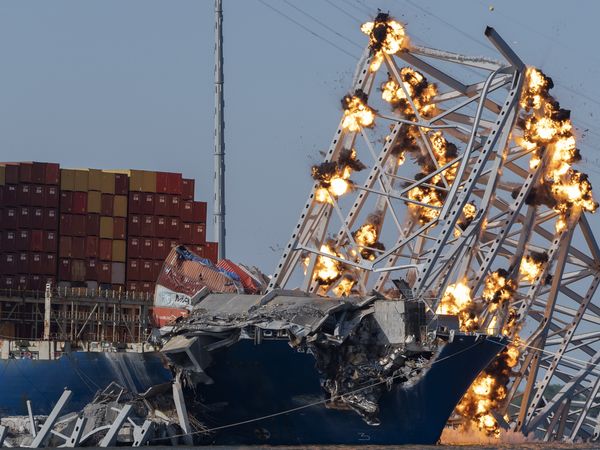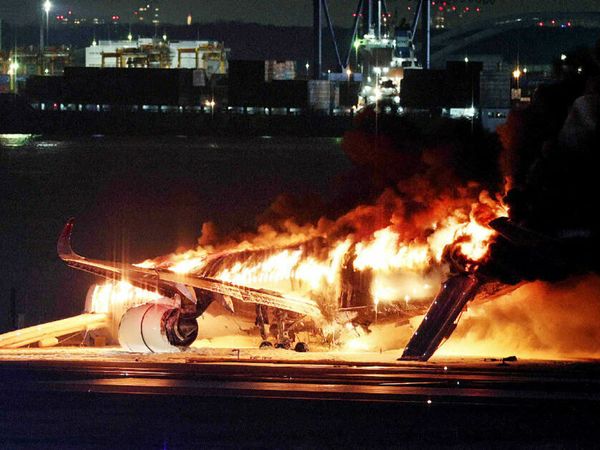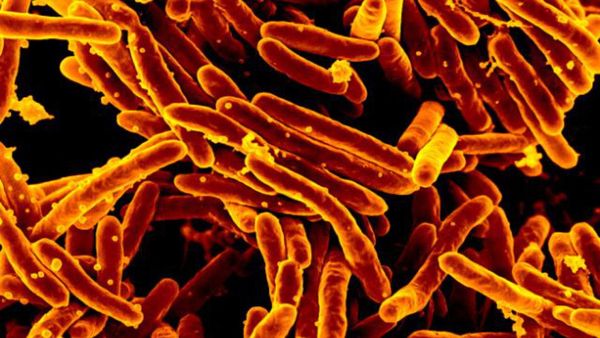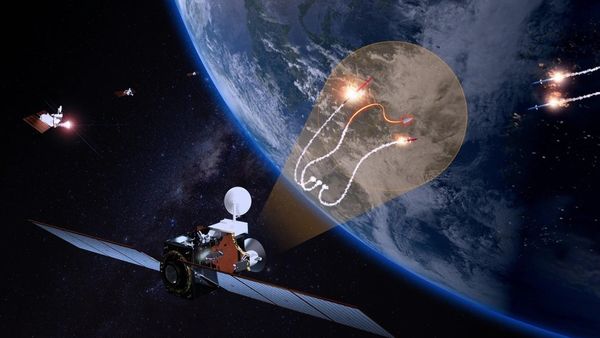
A Wembley final is the ultimate occasion, one where champions are crowned and winners are made.
From the FA Cup to the World Cup, England's national stadium – in its old guise until 2000 and its modern rebuild since 2007 – has played host to some truly historic finals, and we've picked out the very best of them.
Click any of the right-hand arrows to kick off the countdown!
Back-to-back League Cup winners Liverpool got their hands on the trophy for a third straight year thanks to a dramatic Wembley victory over arch-rivals Manchester United.
United led for more than an hour through Norman Whiteside’s 12th-minute opener, but Alan Kennedy’s equaliser 15 minutes from time forced extra time – where Ronnie Whelan notched the winner for Bob Paisley’s Reds.
Scunthorpe and Luton both led during regulation time in the thrilling 2009 EFL Trophy final, where Grant McCann’s 88th-minute leveller forced extra time – only for Claude Gnakpa to win it for the Hatters five minutes into the additional 30.
EFL Trophy victory was the highlight of an otherwise miserable season for Luton: they were relegated to the National League after being deducted a whopping 30 points – which prompted their fans to protest vociferously against the EFL and FA at Wembley.
Manchester City started the 2013 FA Cup final against Wigan as hot favourites: they were on course to finish second in the Premier League, while their opponents languished at the wrong end of the table.
But Roberto Martinez’s Latics pulled off one of the great Wembley upsets thanks to Ben Watson’s header from a Shaun Maloney corner a minute into injury time. Three days later, Wigan’s defeat to Arsenal made them the first FA Cup winners to be relegated the same season.
Manchester United won their second FA Cup with an entertaining 4-2 triumph over Blackpool in the 1948 final – the third following the end of the Second World War.
With 20 minutes to go, Blackpool were 2-1 up and heading for glory, but United rallied late on to turn the game on its head, Stan Pearson scoring the goal which put them in front and John Anderson making sure of victory.
Southampton must have thought they were taking the 2017 League Cup final to extra time, with the scores level at 2-2 three minutes from time after the Saints had fought back from 2-0 down after 38 minutes.
But it wasn’t to be: in the 87th minute, Zlatan Ibrahimovic showed that he was the man for the big moments by heading home Ander Herrera’s cross to secure Jose Mourinho’s first major trophy as United manager.
Tottenham entered the 2008 League Cup final – the first at the new Wembley – aiming to lift their first major trophy since winning the same competition nine years earlier.
And Spurs did it the hard way against bitter London rivals Chelsea: Didier Drogba had put the Blues ahead in the first half, but Dimitar Berbatov’s 70th-minute penalty took the game to extra time – and Jonathan Woodgate’s header completed the comeback.
Peterborough earned promotion to the old Second Division after a frantic ending to the 1992 Third Division play-off final, beating Stockport thanks to a Ken Charlery brace.
Charlery scored the winner mere moments after Stockport looked to have forced extra time through Kevin Francis – whose controversially disallowed goal earlier in the game had County manager Danny Bergara calling for some sort of video review system (check the year).
A suitably crazy final for the annual madness that is the EFL play-offs, the 2019 League One play-off final saw Charlton come from behind to stop Sunderland making an immediate return to the second tier.
The game got off to the worst possible start for the Charlton, when goalkeeper Dillon Phillips horribly miscontrolled Naby Sarr’s backpass, resulting in an own goal to gift Sunderland the lead. Ben Purrington levelled before half-time, though, and then, with virtually the last kick of the match, Patrick Bauer slid home the winner.
Two of the most successful clubs during the early decades of the FA Cup, West Brom and Preston went head-to-head for the famous old trophy in 1954.
And the final produced a thoroughly entertaining spectacle: both sides led – West Brom opened the scoring through Ronnie Allen, who bagged a brace, before Preston turned it around with goals from Angus Morrison and Charlie Wayman – before Frank Griffin clinched victory for the Baggies three minutes from time.
QPR won their only major trophy by beating West Brom to lift the 1966/67 League Cup – and they did it the hard way.
Trailing 2-0 with less than half an hour to go, Rangers were given a lifeline when Roger Morgan pulled a goal back. Rodney Marsh made it 2-2 with 15 minutes remaining, before Mark Lazarus completed the comeback nine minutes from time. Never in doubt, was it…?
In 2013, Wembley hosted its second Champions League final in three years – this time to celebrate 150 years of the FA. No English sides were involved, though; instead, Europe’s premier club competition saw its first all-German final.
Beaten by Chelsea in their own back yard the previous year, Bayern Munich had the opportunity to bounce back against arch-rivals Borussia Dortmund – and they did just that, Arjen Robben’s 89th-minute winner dramatically clinching victory, Bayern’s earlier opener from Mario Mandzukic having been cancelled out by an Ilkay Gundogan penalty.
Two years before captaining England to their greatest honour, the 1966 World Cup, Bobby Moore did likewise with West Ham, lifting the club’s first major trophy.
Ronnie Boyce scored the decisive goal in the final minute of the 90, after John Sissons and Geoff Hurst had the drawn the top-flight Hammers level with second-tier Preston on two occasions.
The 2011 League Cup final saw Birmingham play at Wembley for the first time in more than half a century – and they weren’t going to let the opportunity go to waste, shocking Arsenal to lift the trophy.
With the scores level after first-half goals from Birmingham’s Nikola Zigic and Arsenal’s Robin van Persie, extra time loomed – but a calamitous mix-up between Gunners defender Laurent Koscielny and goalkeeper Wojciech gifted substitute Obafemi Martins the chance to win it for the Blues.
As a second-tier side, Cardiff went into the 2012 League Cup final as big underdogs – but they came very close to upsetting record winners Liverpool.
The Bluebirds led after 19 minutes through Joe Mason but were eventually pegged back by Martin Skrtel’s 60th-minute equaliser for the Reds – who went in front through Dirk Kuyt 18 minutes into extra time, only for Ben Turner to level things up once again and force penalties.
Captain Steven Gerrard and Charlie Adam missed Liverpool’s first two spot-kicks, but Kenny Dalglish’s side got their act together to win the shootout 3-2.
The last April FA Cup final produced a thrilling draw between Chelsea and Leeds at Wembley.
Jack Charlton headed the Whites in front midway through the first half, but Peter Houseman drew the Blues level shortly before the break.
And that’s how it remained until the 84th minute, when Mick Jones thought he’d won it for Leeds – only to see Ian Hutchinson head home Chelsea’s second equaliser less than two minutes later.
So, it went to a replay at Old Trafford – which Chelsea won 2-1 after extra time.
“The Crazy Gang have beaten the Culture Club.”
John Motson delivered one of his most famous lines as Bobby Gould’s Wimbledon pulled off one of the most memorable victories in FA Cup history, stunning newly crowned English champions Liverpool – who had dominated the 80s at home and abroad.
Lawrie Sanchez’s looping header from a Dennis Wise free-kick proved to be the decisive goal, with Wimbledon goalkeeper Dave Beasant making the first ever FA Cup final save to deny John Aldridge.
Euro 96 didn’t get the fairytale finish of England lifting the trophy on home soil – but it did get a memorable final between the Czech Republic and Germany.
Patrik Berger’s penalty put the Czechs in front just shy of the hour mark, before Olivier Bierhoff levelled things up, meaning extra time would be needed to determine the champions of Europe.
And it was in extra time that Bierhoff scored the most significant goal of his career: a golden goal, the first ever in a major tournament.
Sheffield Wednesday got their hands on the FA Cup for the third time thanks to victory in a pulsating 1935 final against West Brom.
Wednesday made the perfect start, taking the lead inside two minutes courtesy of Jack Palethorpe – only for Wally Boyes to draw the Baggies level midway through the first half.
It remained 1-1 until the 70th minute, when Mark Hooper restored Wednesday’s lead – but West Brom fought back once again, Teddy Sandford equalising five minutes later.
The Yorkshire side got the job done in the end, though, a late brace from Ellis Rimmer securing the Cup.
Arsenal survived an almighty scare to overcome Hull City and win the 2013/14 FA Cup, having found themselves 2-0 down after just eight minutes against the first-time finalists.
Hull were in dreamland thanks to goals from defenders James Chester and skipper Curtis Davies, but the Gunners took the match to extra time courtesy of strikes from Santi Cazorla and Laurent Koscielny – then Aaron Ramsey completed the turnaround with 11 minutes of the additional period remaining.
The 2011 Champions League final saw Barcelona return to the ground (ok, the rebuilt version of) where they had won their first European Cup 19 years earlier – and they delivered nothing short of a masterclass under Pep Guardiola, who had played in that previous final.
Lionel Messi ran the show during one of the most complete performances in football history, scoring Barca’s second goal as they well and truly dominated Sir Alex Ferguson’s Manchester United, enjoying 63% possession and having 19 shots (12 of which were on target) to their opponents’ four.
FA Cup replays are no more – but back in the day, they even used to replay the final. And Tottenham and Manchester City contested the most thrilling such tie in 1981.
Early goals from Ricky Villa and Steve MacKenzie set the tone, and the two teams went in all square at half-time. Kevin Reeves’ penalty gave City the lead five minutes after the restart, but Garth Crooks had Spurs back on terms midway through the second half.
The stage was set for a grandstand finish, and Villa secured cup glory for Spurs with one of the great FA Cup final goals, a mazy solo effort.
Coventry enjoyed their finest hour (well, two hours) in 1987 as they defeated Tottenham to win their very first piece of major silverware.
The Sky Blues found themselves behind inside two minutes, Clive Allen opening the scoring for Spurs – but Dave Bennett bagged an equaliser shortly afterwards. Gary Mabbutt’s goal sent the North Londoners in ahead at half-time, but Keith Houchen notched another equaliser just after the hour mark.
That was enough to take the final to extra time – where, six minutes in, Mabbutt scored at the wrong end to hand Coventry the trophy.
It’s a real shame that the 1990 ended up being settled by a pretty dull replay (Manchester United won 1-0, clinching their first silverware under Alex Ferguson), because this was an absolute classic.
In a contest which went this way and that over and over again, Crystal Palace led through Gary O’Reilly, United equalised through skipper Bryan Robson then took the lead courtesy of Mark Hughes, and Palace levelled it up with an Ian Wright goal.
So, the two sides tried to settle things in extra time – and the Eagles were heading for victory as Wright made it a brace early on, only for Hughes to do likewise seven minutes from time.
Gillingham have been involved in more than one utterly chaotic play-off final, and they emerged victorious to win promotion to the second tier in 2000 – the last year of finals at the old Wembley.
Having taken the lead through a first-half Pat McGibbon own goal, the Gills were pegged back midway through the second half by Simon Haworth’s sensational chip with the outside of his right foot.
Wigan lost Kevin Sharp to a red card late in the 90 but took the lead in extra time through substitute Stuart Barlow’s penalty – only for goals by Gillingham’s own subs, Steve Butler and Andy Thomson, in the final seven minutes to flip the game on its head again.
The 80s were heady days for Luton, but they still started the 1988 League Cup final as underdogs against fellow First Division outfit Arsenal – the competition holders.
It took the Hatters only 13 minutes to go in front, though, through Brian Stein – and they hold onto their lead for the best part of an hour.
Quickfire goals from substitute Martin Hayes and Alan Smith flipped the game on its head, but the Gunners’ joy was short-lived as Danny Wilson put Luton back on terms.
As the clock ticked past 89, extra time felt inevitable – but there was to be no need: in the final minute, Stein struck from close range to seal glory for Luton – who were helped throughout by some fine saves from Andy Dibble.
Arsenal claimed their fifth FA Cup following one of the most thrilling endings the final of the competition has ever seen.
They must have been preparing to engrave the trophy as the clock ticked past 86 with the Gunners still 2-0 up thanks to Brian Talbot and Frank Stapleton’s first-half goals – but then Manchester United mounted an incredible comeback, Gordon McQueen and Sammy McIlroy bringing them on terms within two minutes.
It was to be Arsenal who had the last laugh, though, more or less going straight down the other end and winning it through Alan Sunderland.
Relegated in 1994, Bolton bounced straight back up to the top flight by edging out Reading in a classic play-off final.
With just a quarter of an hour to play, Reading were 2-0 up (they had been since the 12th minute) and had the Premier League in their sights for the first time in their history. Bolton weren’t done, however and goals from Owen Coyle and substitute Fabian de Freitas forced extra time – where Mixu Paatelainen’s header on the brink of half-time put the Trotters ahead for the first time all day.
De Freitas’ second goal two minutes from time gave Bolton breathing space and, despite Reading sub Jimmy Quinn scoring to ensure a nervy finish, Bruce Rioch’s team held on for victory.
In 1999 and 2000, Manchester City won successive promotions to climb from the third tier back to the Premier League – and they achieved the first of those in remarkably dramatic fashion.
The Second Division play-off final was deadlocked at 0-0 after 81 minutes – then all hell broke loose: Carl Asaba put Gillingham ahead, and the Kent side soon doubled their lead through Robert Taylor. Surely City couldn’t fight back.
Evidently, they did: Kevin Horlock gave Joe Royle’s team hope with a 90th-minute strike, before Paul Dickov – who had been denied a seemingly stonewall penalty for handball in the first minute, equalised deep into stoppage time.
Extra time produced no goals (although City were denied another penalty for handball), so to penalties it went – and goalkeeper Nicky Weaver proved to be the hero, saving from Guy Butters to seal the most unlikely of victories.
Stan Mortensen scored the first ever Wembley FA Cup final hat-trick as Blackpool lifted the trophy in 1953 – but this game is remembered as the ‘Matthews final, so incredible was the performance of Mortensen’s teammate, the inimitable Stanley Matthews.
Matthews set up two of Blackpool’s goals – including Bill Perry’s stoppage-time winner – and generally ran Bolton ragged as the Tangerines secured their first and, to date, only piece of major silverware, battling back from 1-0 and 3-1 down to do so.
Despite what it meant, Bolton striker Nat Lofthouse is said to have stood and applauded Perry’s goal. A different time.
The second ever Merseyside derby FA Cup final (and the second in the space of four years) produced one of the greatest games in the history of the world’s oldest cup competition.
Liverpool came into the final just five weeks after the horrific Hillsborough disaster had claimed the lives of 95 of their dans, so it was always going to be an emotional occasion – and there was no getting away from that as Gerry Marsden performed a tearjerking rendition of ‘You’ll Never Walk Alone’ prior to kick-off.
John Alridge got the Reds off to the best possible start by scoring inside four minutes – and that looked to have done the job, only for Toffees substitute Stuart McCall to send the match to extra time by scrambling the ball with just seconds remaining.
But the drama was only just beginning… Ian Rush restored Liverpool’s lead five minutes after the restart, before McCall brought Everton level once more – only for Rush to complete his own brace moments later, heading home John Barnes’ cross to secure victory for Kenny Dalglish’s men.
Charlton earned promotion to the top flight for the first time in 41 years by winning a truly bonkers First Division play-off final against Sunderland.
The Addicks opened the scoring on 23 minutes through Clive Mendonca, and that was the only goal until the 50-minute mark – when Nial Quinn equalised for the Black Cats and the carnage commenced. Kevin Phillips soon made it 2-1 to Sunderland, only for Mendonca to notch his second and level things up once more.
Quinn made it a brace by restoring the Wearsiders’ lead almost immediately – but Charlton forced extra time thanks to centre-back Richard Rufus’ 85th-minute goal, his first in 165 appearances for the club. That made it 3-3, in case you were losing track.
Sunderland led for a third time as Nicky Summerbee struck nine minutes into extra time – but Mendonca completed his hat-trick four minutes later to set up penalties.
And the shootout proved to be every bit as dramatic as the match itself: Charlton converted their first seven spot-kicks and Sunderland their first six – before Sasa Ilic saved from Michael Gray to spark sheer delirium.
final, the moment England claimed the trophy for the very first time in circumstances etched into the mind of every Three Lions fan (whether they were alive then or not).
Both England and West Germany led during regulation time, but Wolfgang Weber’s 89th-minute equaliser sent the showpiece occasion to extra time. 2-2.
Then came that moment: Geoff Hurst notched his second goal of the match. Did the ball cross the line after hitting the crossbar? Azerbaijani linesman Tofiq Bahramov said so – and that’s all that matters!
Of course, Hurst had time to make it a hat-trick – the first in a World Cup final until Kylian Mbappe repeated the feat some 56 years later – at which point BBC commentator Kenneth Wolstenholme uttered arguably the most famous line in football history:
“And here comes Hurst. He’s got… Some people are on the pitch; they think it’s all over. It is now! It’s four!”







